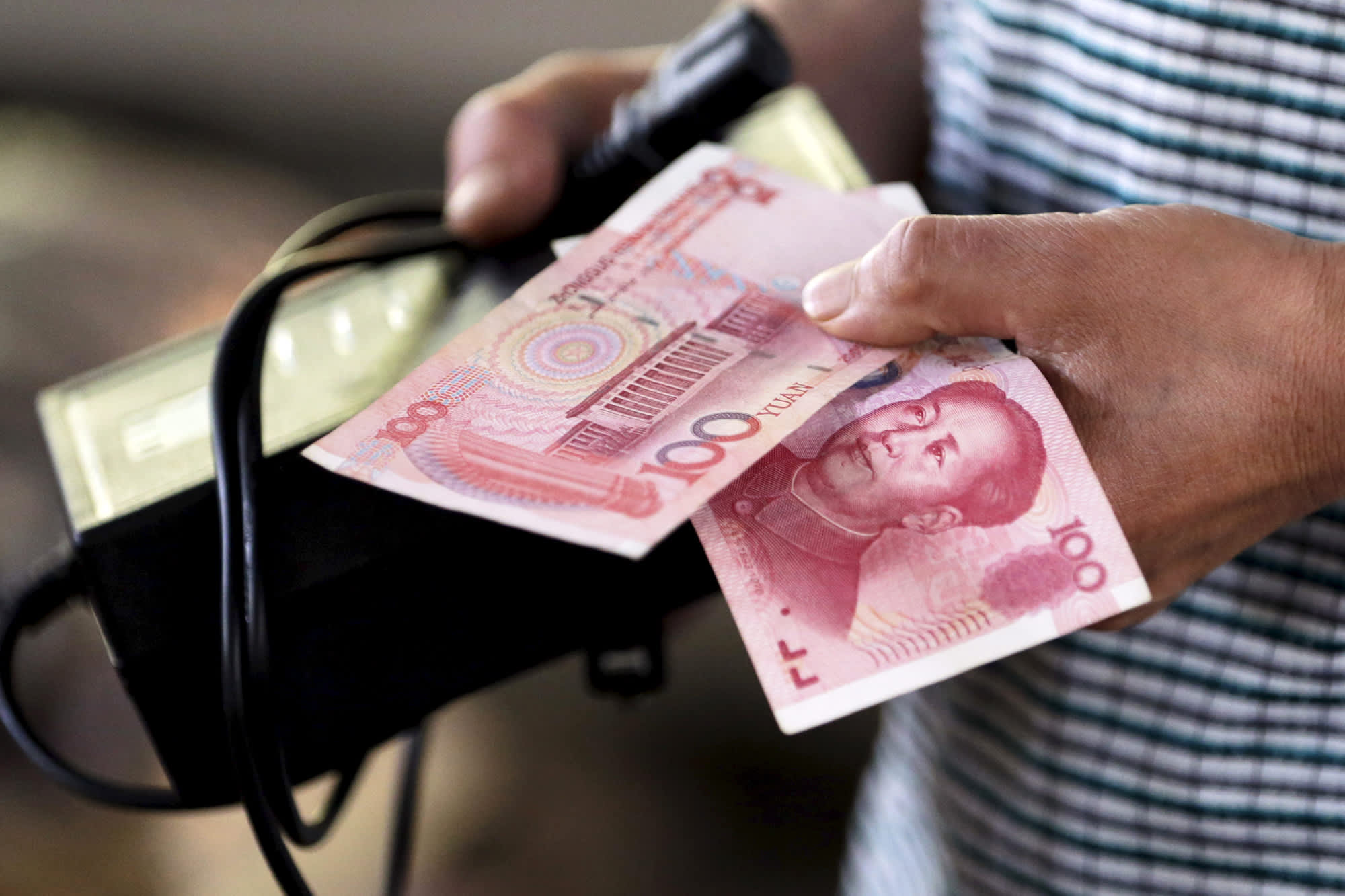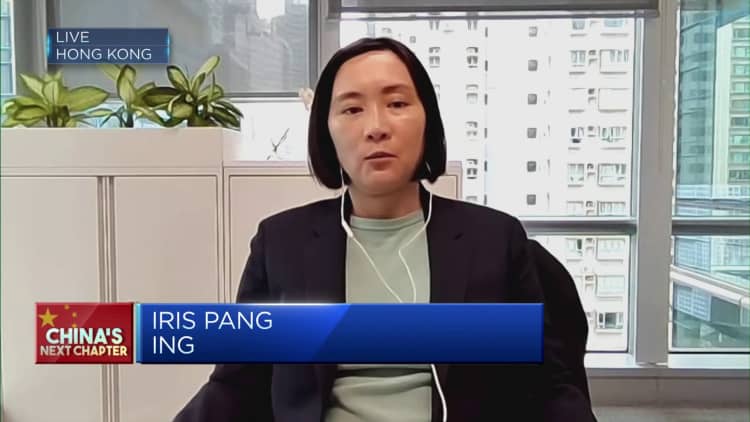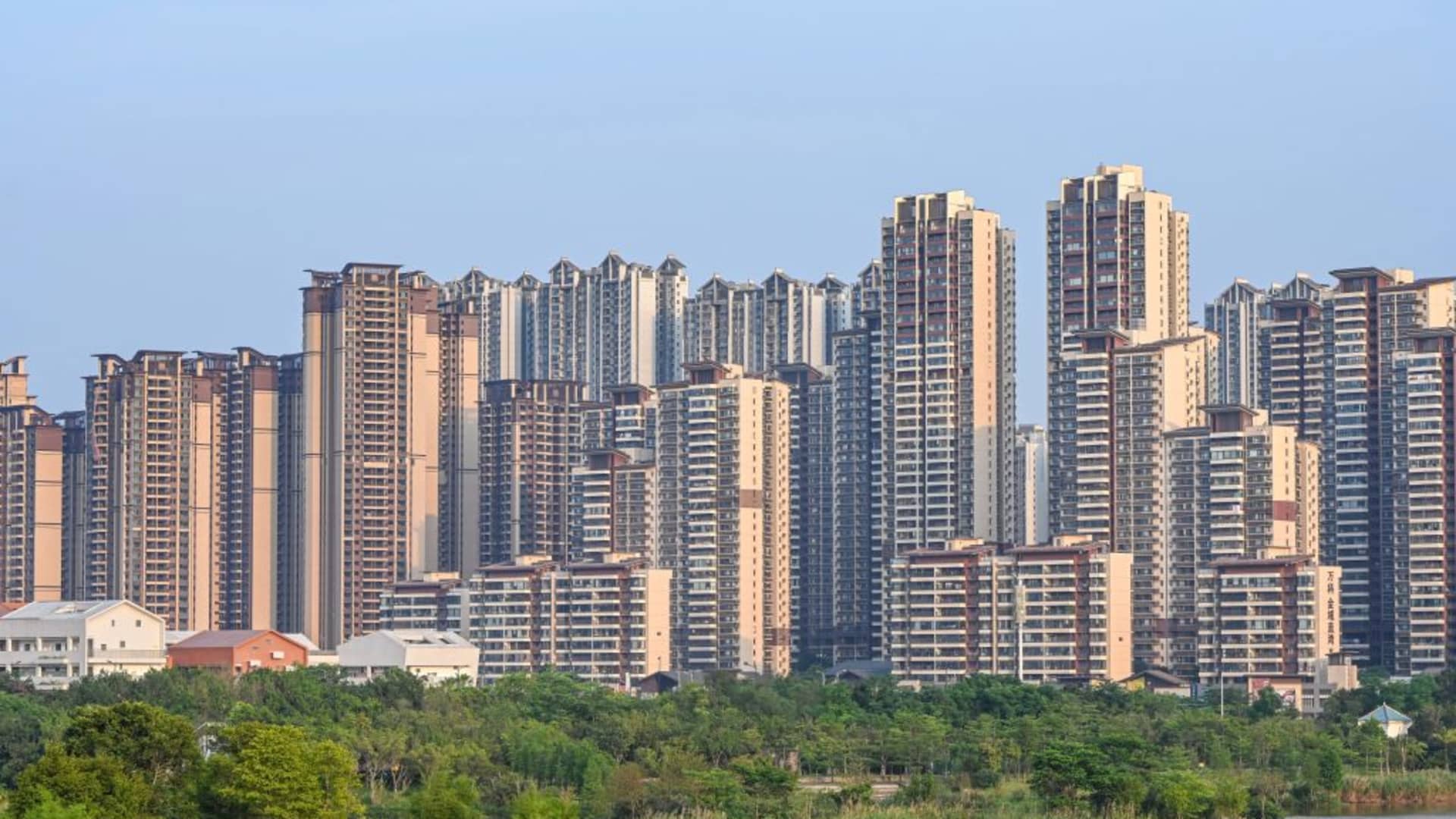NANNING, CHINA – MAY 17, 2023 – A commercial residential property is seen in Nanning, South China’s Guangxi Zhuang autonomous region, May 17, 2023.
Future Publishing | Future Publishing | Getty Images
Wall Street banks have cautioned that weaknesses in China’s real estate sector could have long-term negative effects on the economy, potentially impacting neighboring countries in the region.
“We see persistent weaknesses in the property sector, mainly related to lower-tier cities and private developer financing, and believe there appears no quick fix for them,” stated Goldman Sachs economists led by China economist Lisheng Wang in a weekend note.
related investing news


Goldman’s economists predict that the property market will experience an “L-shaped recovery,” characterized by steep declines followed by a slow rate of recovery.
“We only assume an ‘L-shaped’ recovery in the property sector in the coming years,” they added.

Goldman Sachs economists also anticipate that the Chinese government will introduce more housing stimulus packages to support the struggling sector.
“We believe the policy priority is to manage the multi-year slowdown rather than to engineer an upcycle,” the analysts noted, stating that they do not expect a repeat of the previous cash-backed shantytown renovation program from 2015-2018.
They were referring to China’s urban redevelopment project, which aimed to renovate millions of dilapidated homes in order to drive urbanization and improve livelihood.
According to Reuters, the government invested around $144 billion in the first seven months of 2018 to compensate residents of homes that were demolished in smaller cities struggling with unsold homes, in a bid to boost home sales and prices.
Divergence between public and private
JPMorgan’s Asia Chief Market Strategist, Tai Hui, identified a significant divergence between government-owned property businesses and private companies in the industry as another concern for the property sector.
If the challenges in the property sector deepen and bring risk aversion in the financial system and affect consumer confidence, this will cause a deeper slowdown in China.
“I think that the recovery is going to be slow, but there is also a huge divergence between the state-owned developers, which have performed better in this current rebound, and the more private sector developers, who are still struggling,” Hui told CNBC’s “Squawk Box Asia” on Tuesday.
The property sector was also highlighted in a government work report released earlier this year, which called for support for first-time homebuyers and to address the housing problems of new urban residents and young people.

Hui said the government’s efforts to limit property prices could exclude a significant portion of potential buyers.
“While the authorities have been relaxing some of their policies in the past 6 to 9 months, I think their intention to maintain price affordability, i.e., not letting prices rise too much… that’s really excluding a big part of the potential buyer base,” he explained.
Further slowdown ahead
In its mid-year outlook report, Morgan Stanley warned that additional weakness in the property sector could pose further challenges for China’s growth.
“If the challenges in the property sector deepen and bring risk aversion in the financial system and affect consumer confidence, this will cause a deeper slowdown in China,” wrote Morgan Stanley’s chief economist, Chetan Ahya.
If monetary easing measures fail to revive the struggling property sector, concerns about spillover effects in the Asia-Pacific region will arise, according to the firm’s economists.
“A downside risk would be if China’s property sector does not stabilize even with the easing we expect,” they added. “In that scenario, confidence and financial conditions will tighten in China, which will have direct implications for China’s growth but also will negatively spill over to the region.”
– CNBC’s Evelyn Cheng contributed to this report.
Denial of responsibility! VigourTimes is an automatic aggregator of Global media. In each content, the hyperlink to the primary source is specified. All trademarks belong to their rightful owners, and all materials to their authors. For any complaint, please reach us at – [email protected]. We will take necessary action within 24 hours.


